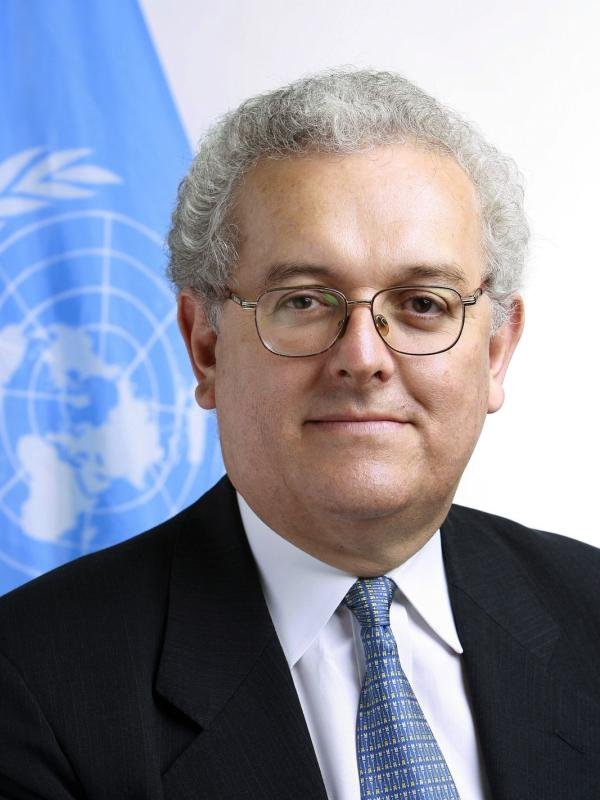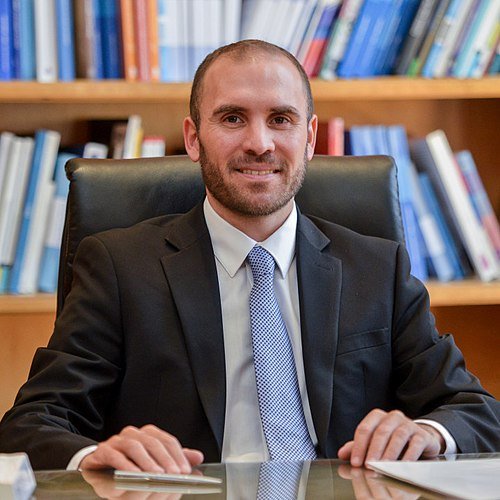
Developing country debt crises have been a recurrent phenomenon over the past two centuries. In recent times sovereign debt insolvency crises in developing and emerging economies peaked in the 1980s and, again, from the middle 1990s to the start of the new millennium. Despite the fact that several developing countries now have stronger economic fundamentals than they did in the 1990s, sovereign debt crises will reoccur again.
The reasons for this are numerous, but the central one is that economic fluctuations are inherent features of financial markets, the boom and bust nature of which intensify under liberalized financial environments that developing countries have increasingly adopted since the 1970s. Indeed, today we are in the midst of an almost unprecedented global “bust.” The timing of the book is important. The conventional wisdom is that the international economic and financial system is broken. Policymakers in both the poorest and the richest countries are likely to seriously consider how to restructure the international trade and financial system, including how to resolve sovereign debt crises in a more effective and fair manner.
This book calls for the international reform of sovereign debt workouts which derives from both economic theory and real-world experiences. Country case studies underline the point that we need to do better. This book recognizes that the politics of the international treatment of sovereign debt have not supported systemic reform efforts thus far; however, failure in the past does not preclude success in the future in an evolving international political environment, and the book thus puts forth alternative reform ideas for consideration.
About the Editors
Barry Herman
Visiting Senior Fellow, Graduate Program
International Affairs
The New School
Barry Herman (Ph.D., University of Michigan) is Visiting Senior Fellow at the Graduate Program in International Affairs of The New School in New York. He has been a member since its founding in 2010 of the Advisory Board of Social Justice in Global Development e.V., an international NGO registered in Germany that promotes reform of global development policies and improved global economic governance by preparing papers and organizing seminars and conferences for information exchange, advocacy and development education (www.socdevjustice.org). Also, from its inception in 2005 until end 2011, he was a member of the Board of Directors of Global Integrity, a research NGO based in Washington that works with independent scholars and investigative reporters on assessing laws, institutions and practices to improve governance and limit corruption in developed and developing countries. In addition, from 2004 to 2009 he co-chaired the Task Force on Debt Restructuring and Sovereign Bankruptcy at the Initiative for Policy Dialogue at Columbia University. He completed almost 30 years in the United Nations Secretariat in 2005, the last two years of which were as Senior Advisor in the Financing for Development Office in the Department of Economic and Social Affairs (DESA). He consults with various offices of the United Nations and other official bodies and non-governmental networks on international economic and financial policies (most recently, the World Council of Churches in 2012).
José Antonio Ocampo
Professor of Professional Practice at Columbia University and former Minister of Finance of Colombia
Columbia University
Jose Antonio Ocampo is a Professor of Professional Practice in the School of International and Public Affairs and former Minister of Finance of Colombia. He is also a Fellow of the Committee on Global Thought at Columbia University. Prior to his appointment at Columbia, Professor Ocampo served as the United Nations Under-Secretary-General for Economic and Social Affairs, and head of UN Department of Economic and Social Affairs (DESA), as Executive Secretary of the UN Economic Commission for Latin America and the Caribbean (ECLAC), and has held a number of high-level posts in the Government of Colombia, including Minister of Finance and Public Credit, Director of the National Planning Department, and Minister of Agriculture . Professor Ocampo is author or editor of over 30 books and has published over 200 scholarly articles on macroeconomic theory and policy, international financial issues, economic development, international trade, and Colombian and Latin American economic history.
Shari Spiegel
Senior Economic Affairs Officer
UN DESA
Shari Spiegel joined UN DESA as a Senior Economic Affairs Officer in May 2010. She is co-author and co-editor of several of books and articles on capital and financial markets, debt and macroeconomics. She served as Executive Director of the Initiative for Policy Dialogue (IPD). She has extensive experience at the private sector, most recently as a Principal at New Holland Capital and as head of fixed-income emerging markets at Lazard Asset Management. She also served as an advisor to the Hungarian Central Bank in the early 1990s.
About the Authors
Joseph Stiglitz
President
Initiative for Policy Dialogue (IPD)
Joseph E. Stiglitz is President of the Initiative for Policy Dialogue, and Chairman of the Committee on Global Thought at Columbia University. He is University Professor at Columbia, teaching in its Economics Department, its Business School, and its School of International and Public Affairs. He chaired the UN Commission of Experts on Reforms of the International Monetary and Financial System, created in the aftermath of the financial crisis by the President of the General Assembly. He is former Chief Economist and Senior Vice-President of the World Bank and Chairman of President Clinton’s Council of Economic Advisors. He was awarded the Nobel Memorial Prize in Economics in 2001.
David A. Skeel, Jr.
Professor Of Corporate Law
University of Pennsylvania
Luis Jorge Garay
Associate Research Fellow, Comparative Regional Integration Studies Programme
United Nations University
Shari Spiegel
Senior Economic Affairs Officer
UN DESA
Shari Spiegel joined UN DESA as a Senior Economic Affairs Officer in May 2010. She is co-author and co-editor of several of books and articles on capital and financial markets, debt and macroeconomics. She served as Executive Director of the Initiative for Policy Dialogue (IPD). She has extensive experience at the private sector, most recently as a Principal at New Holland Capital and as head of fixed-income emerging markets at Lazard Asset Management. She also served as an advisor to the Hungarian Central Bank in the early 1990s.
Ugo Panizza
United Nations Conference on Trade and Development (UNCTAD)
Brad Setser
Whitney Shepardson Senior Fellow
Council on Foreign Relations
Henry Northover
Policy Team Leader
WaterAid
Martin Rapetti
Professor
University of MA, Amherst
José Antonio Ocampo
Professor of Professional Practice at Columbia University and former Minister of Finance of Colombia
Columbia University
Jose Antonio Ocampo is a Professor of Professional Practice in the School of International and Public Affairs and former Minister of Finance of Colombia. He is also a Fellow of the Committee on Global Thought at Columbia University. Prior to his appointment at Columbia, Professor Ocampo served as the United Nations Under-Secretary-General for Economic and Social Affairs, and head of UN Department of Economic and Social Affairs (DESA), as Executive Secretary of the UN Economic Commission for Latin America and the Caribbean (ECLAC), and has held a number of high-level posts in the Government of Colombia, including Minister of Finance and Public Credit, Director of the National Planning Department, and Minister of Agriculture . Professor Ocampo is author or editor of over 30 books and has published over 200 scholarly articles on macroeconomic theory and policy, international financial issues, economic development, international trade, and Colombian and Latin American economic history.
Barry Herman
Visiting Senior Fellow, Graduate Program
International Affairs
The New School
Barry Herman (Ph.D., University of Michigan) is Visiting Senior Fellow at the Graduate Program in International Affairs of The New School in New York. He has been a member since its founding in 2010 of the Advisory Board of Social Justice in Global Development e.V., an international NGO registered in Germany that promotes reform of global development policies and improved global economic governance by preparing papers and organizing seminars and conferences for information exchange, advocacy and development education (www.socdevjustice.org). Also, from its inception in 2005 until end 2011, he was a member of the Board of Directors of Global Integrity, a research NGO based in Washington that works with independent scholars and investigative reporters on assessing laws, institutions and practices to improve governance and limit corruption in developed and developing countries. In addition, from 2004 to 2009 he co-chaired the Task Force on Debt Restructuring and Sovereign Bankruptcy at the Initiative for Policy Dialogue at Columbia University. He completed almost 30 years in the United Nations Secretariat in 2005, the last two years of which were as Senior Advisor in the Financing for Development Office in the Department of Economic and Social Affairs (DESA). He consults with various offices of the United Nations and other official bodies and non-governmental networks on international economic and financial policies (most recently, the World Council of Churches in 2012).
Matthew Martin
Sergei Gorbunov
United Nations
Jurgen Kaiser
Policy Coordinator
erlassjahr.de
Roberto Frenkel
Principal Research Associate
CEDES
Roberto Frenkel is Principal Research Associate at CEDES (from 1977) and Professor at the University of Buenos Aires (from 1984). Presently he is also Director of the Graduate Program on Capital Markets (University of Buenos Aires) and teaches graduate courses at the Di Tella and FLACSO-San Andrés Universities in Argentina. He was Professor at the University of Chile, University Católica de Chile, University Central de Venezuela and also visiting professor at the University of California (San Diego), University Católica de Rio de Janeiro and University of Pavia (Italy). He has been a consultant of several international organizations including UN, ILO, UNCTAD, UNDP, ECLAC, and he has also worked for the OECD Development Center, IDB, UNIDO and the governments of Argentina, Bolivia, Colombia, Venezuela and Uruguay. He was Undersecretary Chief of Economics Advisors to the Ministry of Finance (1985-89) and a member of the Board of Directors of the Banco de la Provincia de Buenos Aires (1999-2003) both in Argentina. He is a member of the Board of the World Institute for Development Economic Research (WIDER), United Nations University. He was a member of the UNDP Advisers Group. He published numerous books and articles in academic journals on macroeconomic theory and policy, money and finance, inflation and stabilization policies and labor market and income distribution, with special focus on Argentina and Latin America.
Mitu Gulati
Professor of Law
Duke University
Patrick Bolton
Barbara and David Zalaznick Professor of Business
Columbia University Business School
Anna Gelpern
Scott K. Ginsburg Professor of Law and International Finance
Georgetown Law
Georgetown University
Mario Damill
Researcher
Center for the Study of State and Society (CEDES)
Enrique Cosio-Pascal
Chief of the Debt and Development Finance Branch
United Nations Conference on Trade and Development
Stijn Claessens
Assistant Director, Financial Studies
International Monetary Fund
 Joseph Stiglitz
Joseph Stiglitz José Antonio Ocampo
José Antonio Ocampo Patrick Bolton
Patrick Bolton

 Martín Guzmán
Martín Guzmán